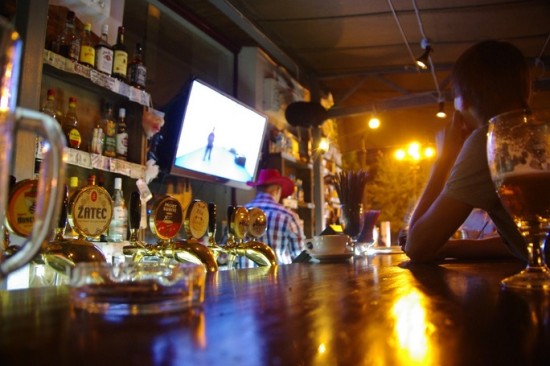New restaurants constitute a significant economic development opportunity on the local level. Large-scale retail and commercial retail development plans often include restaurant spaces as part of the overall project.
In Massachusetts, municipalities have liquor license caps set by the Legislature. Because of this, an increasing number of Massachusetts cities and towns are running into a persistent obstacle to development plans that include bars and restaurants: they simply don’t have any more liquor licenses to award.
The lack of available liquor licenses in some cities and towns has forced developers and municipal economic development officials to put projects on hold while they seek special legislation to authorize additional licenses.
The current system creates a barrier to development and thrusts state lawmakers into the position of middlemen between developers and local planners.

The lack of available liquor licenses has forced developers to put projects on hold.
State Rep. Colleen Garry, a Democrat representing Dracut, recently asked a legislative committee to grant more than a dozen new licenses at once to accommodate planned and anticipated restaurant development in Tyngsborough. If her request is successful, other cities and towns at or near their state caps would likely seek a supply of new liquor licenses to facilitate future development, as well.
Tyngsborough officials have said an envisioned business corridor, which must include new restaurants to thrive, could serve as an economic engine for the area, State House News Service reported.
Ms. Garry said restaurant developers require a greater level of certainty about whether liquor licenses are available before investing time and money into plans that could end up hinging on the vagaries of Beacon Hill politics.
Her bill would carve out a supply of 14 additional licenses for the town, with the condition that they may not be transferred for three years after they’re issued by the town. The provision was added to limit the possibility of developers seeking the valuable licenses to flip for profit, rather than to use long term.




